ANNUAL REPORT 2019
DESIGN & CREATIVE PRACTICE
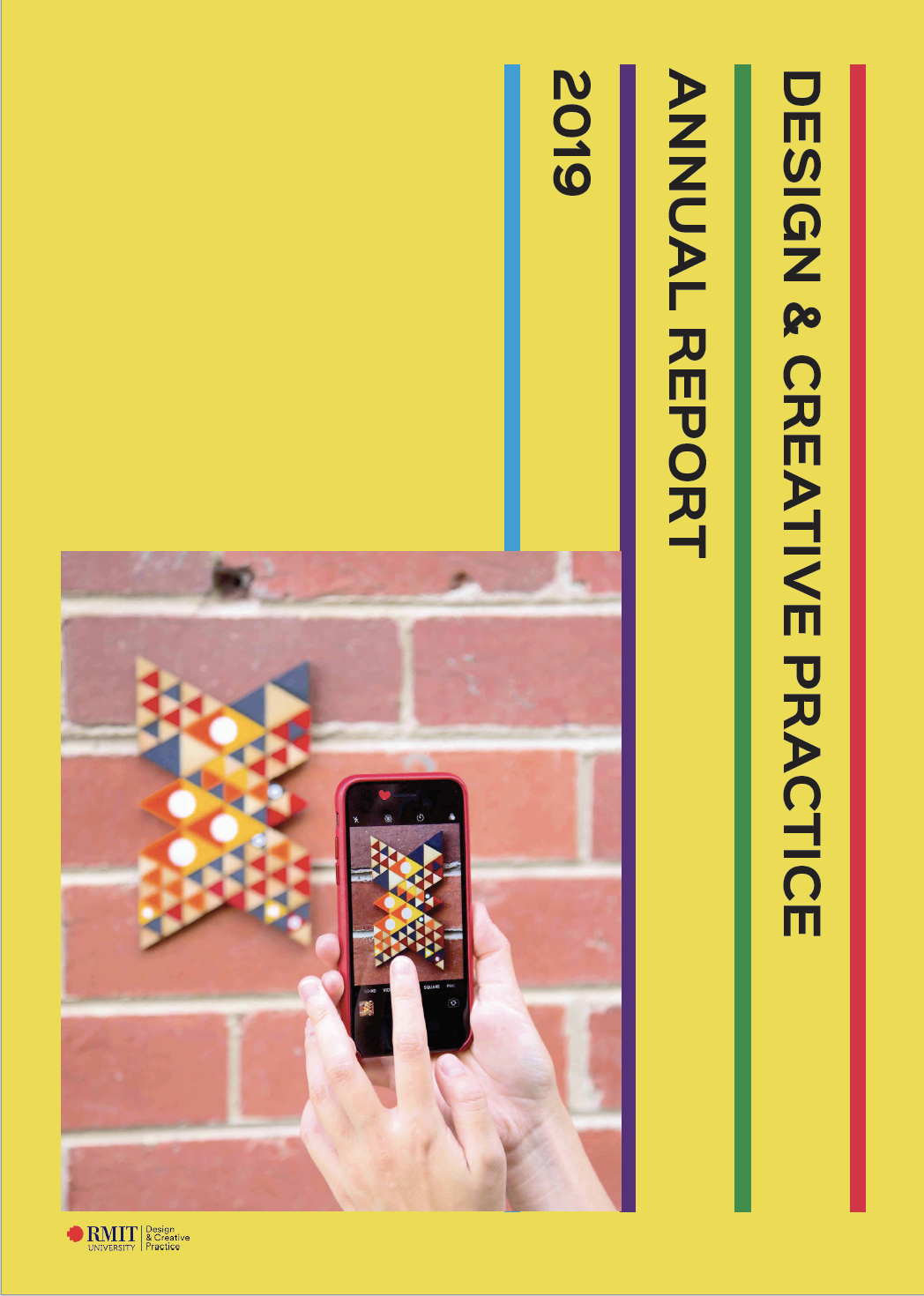
REPORT FORWARD:
2019 has seen the platform coalesce many of our key priority areas through networks and initiatives. These areas include creative interventions around social and health issues; urban play; mapping the value of creativity and creatives in future workforces; new models and methods for understandings social impact.
Our interdisciplinary networks further facilitate and enable our unique expertise — ensuring we take our research to the next level. These include: Wearables & Sensing Network; Contemporary Indigenous Architecture and Placemaking Network; Cultural Value & Impact Network (CVIN); Designing for Social Innovation Network; Design for Social Impact; Health, Arts, Social sciences & Humanities (HASH) Network.
So too, we have many exciting initiatives that seek to build, strengthen, and coalesce our interdisciplinary collaboration. The Impact Observatory is the DCP go to for all projects and activities relating to Design & Creative practice. The portal has two roles — one outward-facing to showcase all the fantastic research to industry, the other private-facing around collecting, curating and supporting research on its translational journey to impact. As we move towards the Engagement and Impact Agenda it is key for us to develop the support mechanisms for translational research.
We continued the highly successful Design Challenge. Last year we partnered with Telstra Digital Health to explore Ageing Well. The winning entry, CatPin has gone on to win awards and prizes. This year we collaborated with City of Melbourne on co-designing inclusive, civic and sensorial moments in the city. The challenge asked teams to consider what does the city feel like, smell like, sound like. Is it different for children? Older adults? How do we co-design a city for neurodiversity? Or cultural and linguistic diversity? And how does this co-design reflect the unique experience of Melbourne?
We have run a series of workshops and events to engage different communities and partners including hosting the Melbourne Ageing Research Collaboration (MARC) annual conference (responding to The Royal Commission into Aged Care), workshops at RMIT Europe (such as the Cities as Playground event) and Urban Play symposium. We have also hosted many global experts at RMIT — such as Professor Colleen Macklin, Associate Professor Anne Galloway, Professor Maren Hartmann, Professor Helen Kennedy — to run postgraduate and early career researcher workshops on games for change, systems thinking, visualisation techniques, more-than-human research, and homelessness. We have had a few key achievements such as the two ARC DECRAs in creative practice as well as the 2020 CreaTures grant (Jaz Choi) exploring the power of creative practice to intervene in the social.
All of these collaborations highlight the commitment of RMIT staff and students to co-designing for social and digital innovation and inclusion. A special thanks goes to the Distributed Leaders Group (DLG) — Dr Julienne van Loon, Prof Daniel Palmer, Dr Jaz Choi, Prof Esther Charlesworth and Prof Renata Kokánovic. Also big thanks to the ever wonderful Adelina Onicas and Esther Pierini. Thanks to our engaged Executive group and to also our industry SERAG advisory board members — Michael Hudson (Creative Vic); Kaye Glamuzina (City of Melb); Seb Chan (ACMI); Emma Crimmings (Artbank); Zara Stanhope (GoMA); Simone Le Amon (NGV); (Chair) Professor Natalie King (VCA).
We thank you for your ongoing support and collaboration.
Larissa Hjorth DCP director
If you would like to get involved with this project, fill out the form below or reach out to project leaders via the contact info provided alongside each bio.
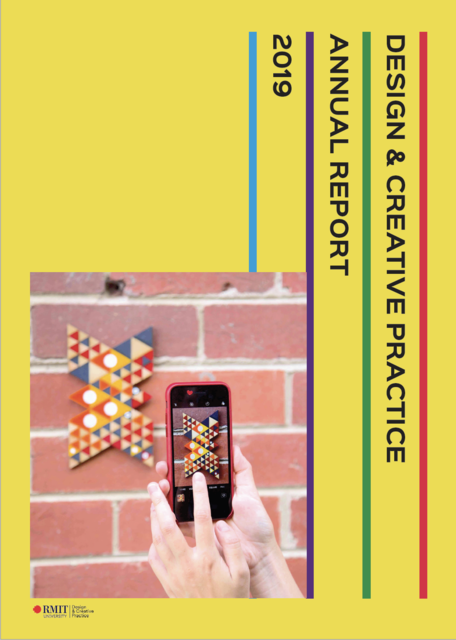
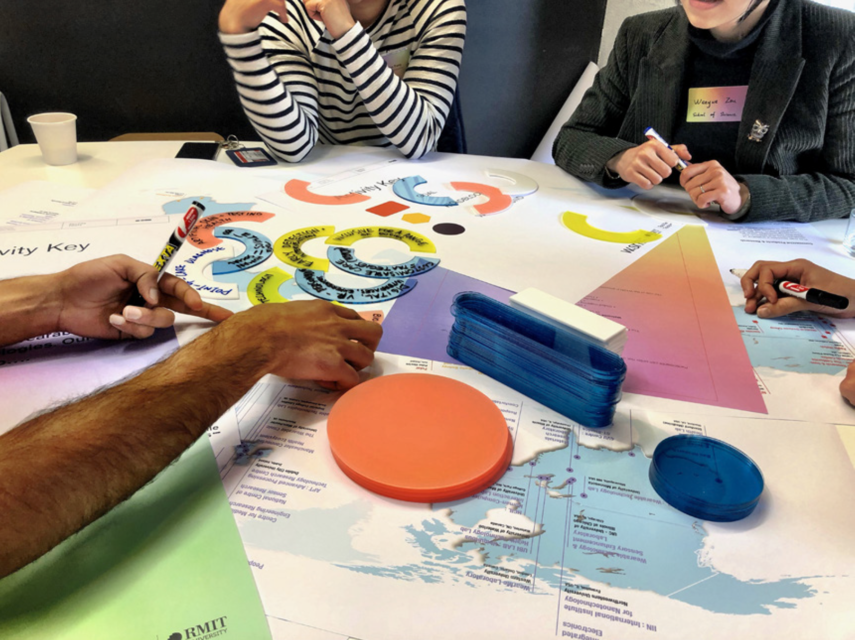
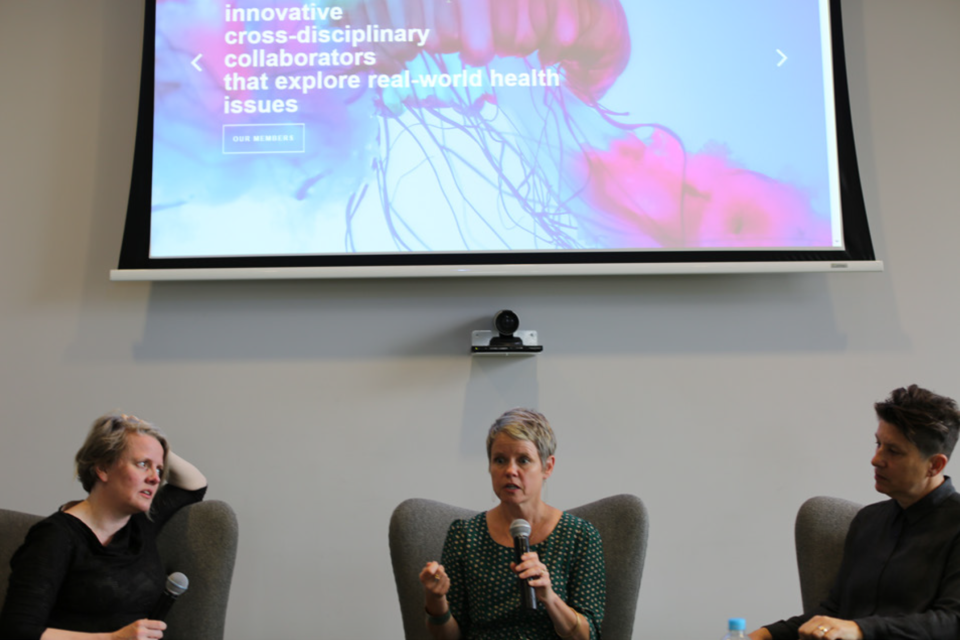
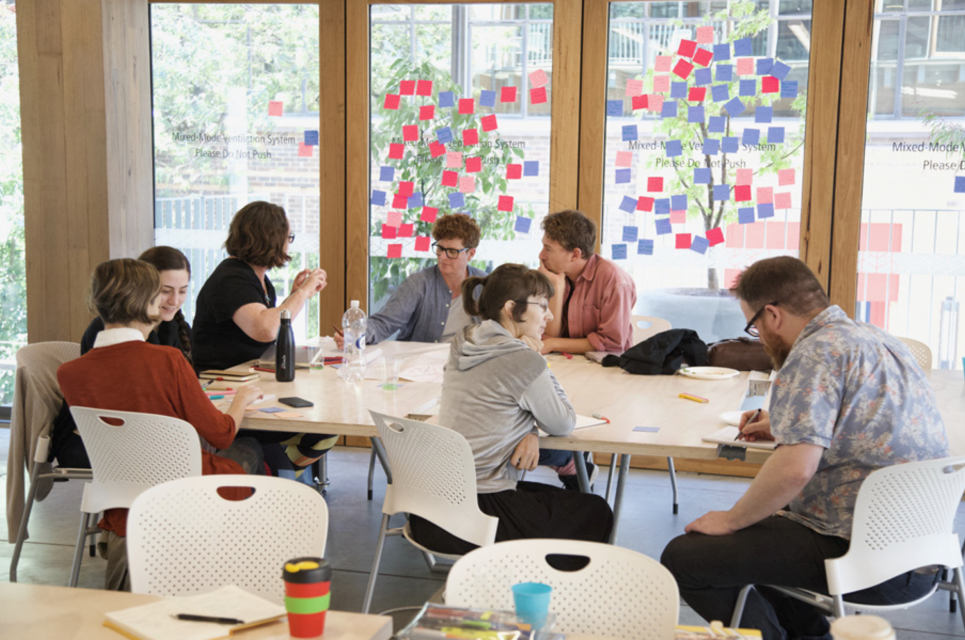
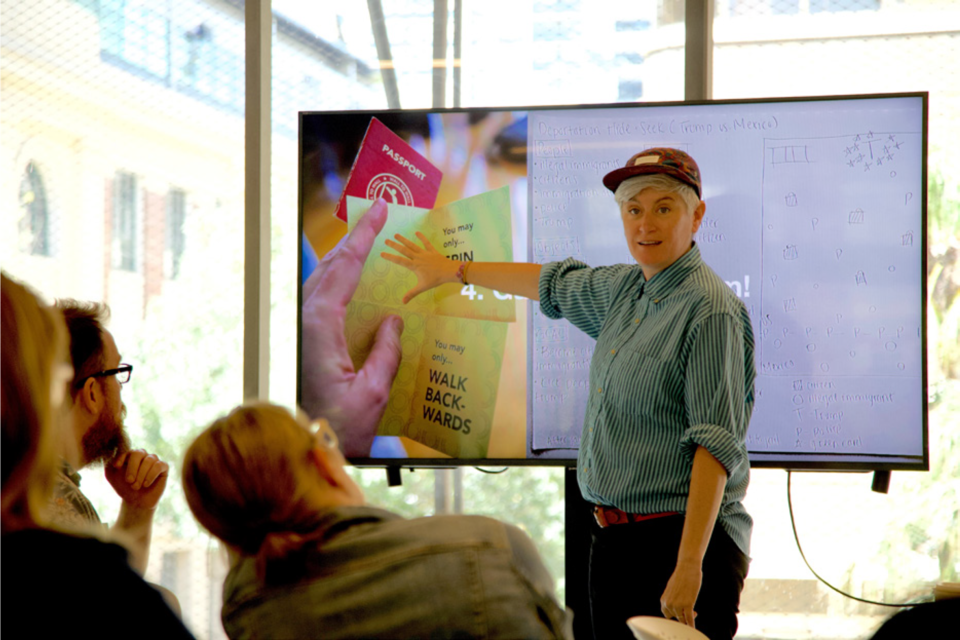
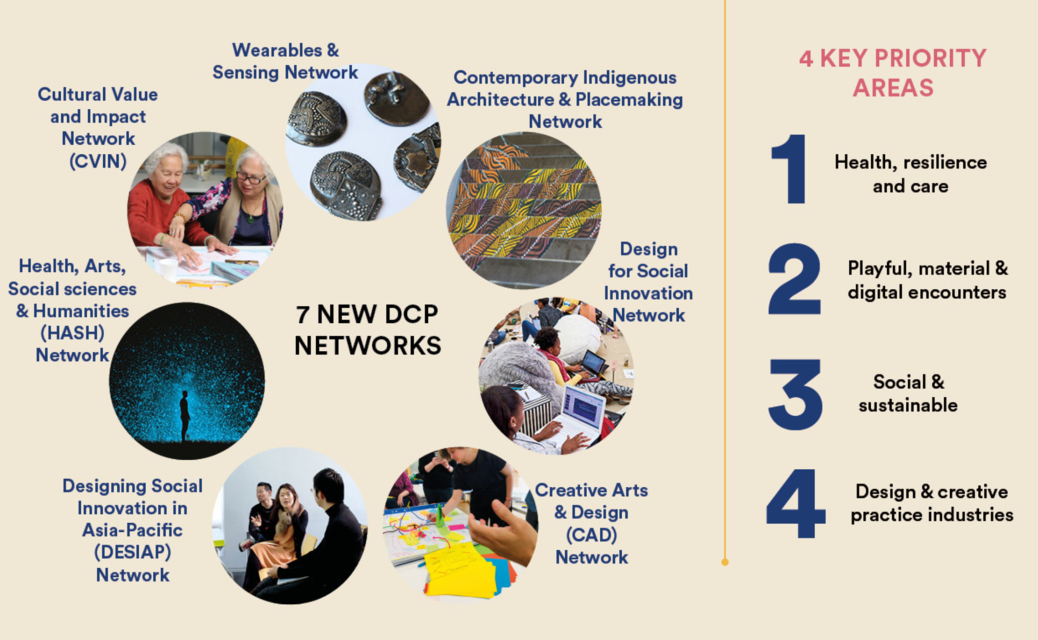
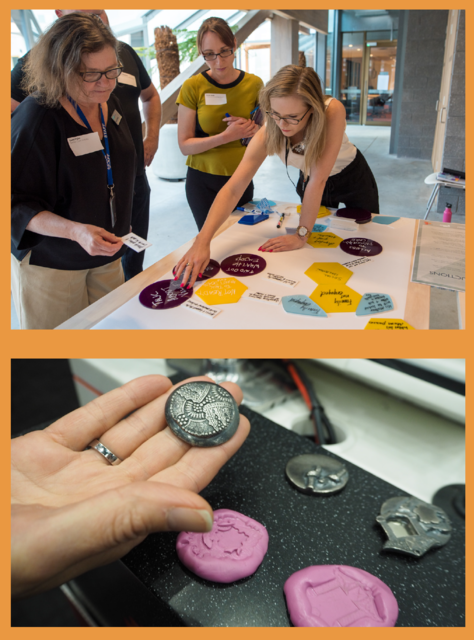
People
Larissa Hjorth
Distinguished Professor and Director, Design and Creative Practice
School: Enabling Capability Platforms
Larissa Hjorth is a digital ethnographer, artist, Distinguished Professor and director of the Design & Creative Practice ECP platform at RMIT University. With Professor Heather Horst, she co-founded the Digital Ethnography Research Centre (DERC). Previously, Hjorth was Deputy Dean, Research & Innovation, in the School of Media & Communication (2013−2016). Hjorth served on the inaugural Australian Research Council (ARC) Engagement & Impact Pilot study assessment panel for humanities and creative practice.
Hjorth studies the socio-cultural dimensions of mobile media and play practices in the Asia-Pacific region with an emphasis on interdisciplinary, collaborative and cross-cultural approaches. She has published a dozen co-authored books, edited over a dozen Handbooks/Companions and has over 40 journal articles.
More recently, Hjorth’s work has become concerned with how we can bring creative, social and design solutions to the growing ageing populations and, in turn, how we might consider scenarios of what it means to die well. She is also studying how our “more-than-human” companions can teach us about new media in everyday life. Hjorth’s last book, Haunting Hands (Oxford Uni Press) looked at how mobile media is being deployed in situations of grief and trauma, her previous book explored how art practice can teach us new acumen into the climate change debate.
Hjorth’s books include Haunting Hands (with Cumiskey 2017), Screen Ecologies (with Pink, Sharp & Williams 2016), Digital Ethnography (Pink et al. 2016) Mobile Media in the Asia-Pacific (2009), Games & Gaming (2010), Online@AsiaPacific (with Arnold 2013), Understanding Social Media (with Hinton 2013), and Gaming in Locative, Social and Mobile Media (with Richardson 2014).
